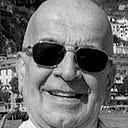“”Cosa pensi che fosse quel posto, un luogo di villeggiatura?”
Alexander Solzhenitsyn era un autore sconosciuto fino alla pubblicazione di “Una giornata nella vita di Ivan Denisovich” nel 1962, il libro che gli avrebbe fatto vincere il Premio Nobel nel 1970. È il resoconto della sopravvivenza di un solo giorno di un contadino russo a malapena alfabetizzato in uno dei campi di lavoro di Stalin. Raffigura la complessità e la resilienza dello spirito umano in uno stile paragonabile a Tolstoj e Dostoevskij. Questo studio misura l’impatto politico e letterario che il libro ha avuto in Russia e all’estero ed esamina le sue qualità più universali e intrinseche.
A pochi mesi dalla fine del disgelo culturale, il 20 ottobre del 1962, il premier sovietico Nikita Khrushchev mise fine ad un tabù decennale approvando la pubblicazione di “Un giorno nella vita di Ivan Denisovich”, uno spietato romanzo dell’ex prigioniero Aleksandr Solzhenitsyn sulla brutale vita in uno dei campi di lavoro di Stalin. A quelli del Politburo che temevano le sue rivelazioni su quei luoghi, il premier ribattè, con orgoglio in questo giorno all’editore di Solzhenitsyn: “Cosa pensi che fosse quel posto, un luogo di villeggiatura?”. Il romanzo ebbe un successo immediato in URSS e in Occidente, ma nel giro di due anni Krusciov fu costretto a lasciare l’incarico a Breznev e, dopo cinque anni, Ivan Denisovich fu silenziosamente rimosso dalle biblioteche sovietiche, dopo dodici, lo stesso Solzhenitsyn, fu esiliato con la forza in Occidente.
@@@@@@@@@@@@@@@@@@@@@@@@@@@@@@@@@@@@
Alexander Solzhenitsyn was an unknown author until the publication of “One Day in the Life of Ivan Denisovich” in 1962, the book that was to win him the Nobel Prize in 1970. It is an account of a barely literate Russian peasant’s surviving a single day in one of Stalin’s labour camps. It depicted the intricacies and resilience of the human spirit in a style comparable with Tolstoy and Dostoyevsky. This study gauges the political and literary impact that the book has made in Russia and abroad, and examines its more universal, intrinsic qualities.
During a cultural thaw that had just a few months remaining, Soviet premier Nikita Khrushchev broke a decades-long taboo by approving the publication of “One Day in the Life of Ivan Denisovich”, an unsparing novel by former prisoner Aleksandr Solzhenitsyn about the brutal life in one of Stalin’s labor camps. To those in the Politburo who feared its revelations about the camp, the premier retorted, as he proudly recounted on this day to Solzhenitsyn’s editor, “What do you think it was, a holiday resort?” The novel was an immediate success in the USSR and in the West, but within two years Khrushchev was forced out of office by Brezhnev, within five Ivan Denisovich was quietly removed from Soviet libraries, and within twelve Solzhenitsyn himself was forcibly exiled to the West.
